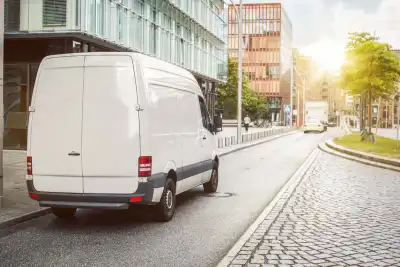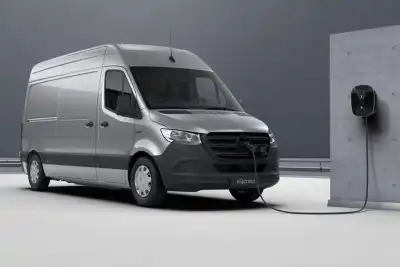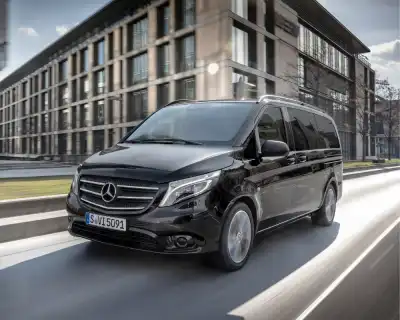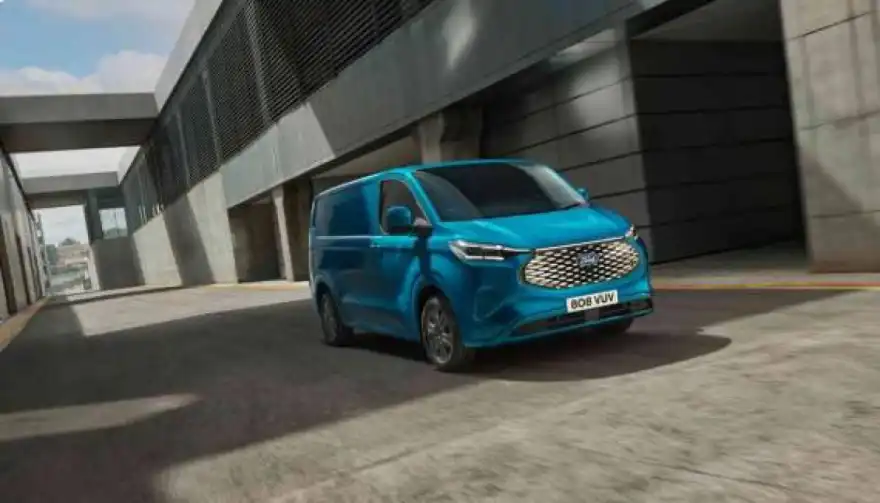
A lot can happen between now and 2035, but that’s the date the government has put in place for the nation to switch from diesel-powered vans. While that sounds far off, it’s just 13 years away. With rising oil prices, more clean air zones, and a government grant to reduce the cost of a new zero-emissions van, is now the time to make the jump and move to an electric future?
What are the reasons to move to an electric van?
Electric vans don’t produce emissions, making them suited to crowded city centres. Even ignoring any other benefits, the improvement in local air quality will be significant as more LCVs switch to electric power.
For a driver, they’re wonderful in urban traffic. The lack of noise and vibrations from a clattering diesel engine makes for a relaxing cabin, reducing stress levels. That’s not just anecdotal but something backed by academic research, proving you’ll have a better time behind the wheel of an eLCV.
You’ll also find them fun to drive, with instant power available from the electric motor. Driving into narrowing gaps, manoeuvring around tight spaces, and pulling out of junctions are all made easier when there’s no gearbox and clutch to worry about, no prospect of stalling, and more torque than most regular vans.
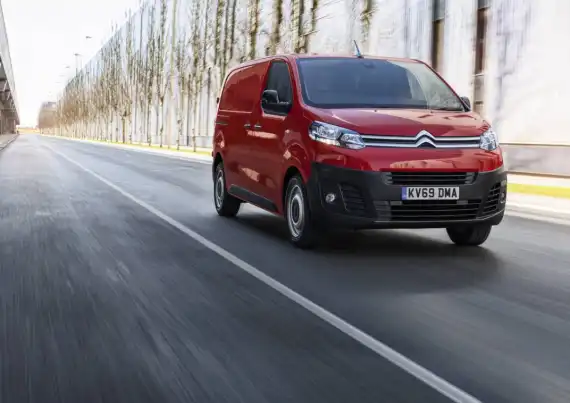
Will I save money?
Almost certainly, but with the caveat that the volatility of oil and gas prices might change the answer. The cost per mile when running on electricity is significantly less than in a diesel van, though, especially if you or your drivers can charge at home overnight. Typically, a small van might cost around 9p a mile in electricity, with a large van setting you back 15p a mile. A diesel van would be between 20p and 35p a mile. The gap narrows when using expensive motorway chargers, but it’s unlikely you’ll lose out.
Maintenance costs are generally lower, too, as there's less wear and tear on the van. Brake wear is reduced thanks to regenerative braking that recoups lost energy, while there are far fewer moving parts under the bonnet; pistons pushing up and down thousands of times a minute, a hard-working clutch and the complex gearbox are all replaced by a simple electric motor.
The growing number of clean air zones could also play a critical part in your calculations. At the most extreme end, driving into central London with an old diesel van could cost you £115 a day thanks to heavy Low Emission Zone and Congestion charges. Switching to an electric model avoids all of that.
But they’re expensive, aren’t they?
Well, yes. The Ford Transit, for example, starts at £37,935 plus VAT, while the E-Transit adds another £10,000 to that price tag. However, your total cost of ownership is likely to be lower with the electric model. Similar depreciation, lower maintenance costs, and less costly fuel combine to keep the van competitive, even if the purchase price is higher.
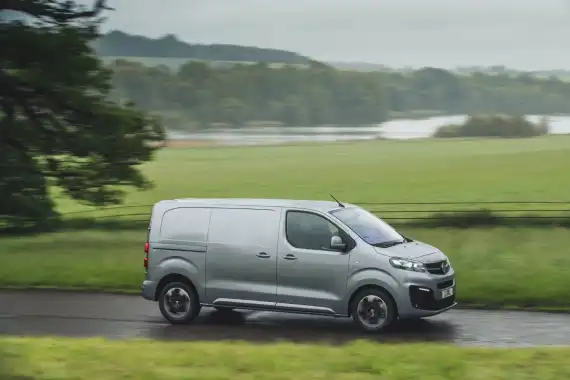
Crucially, there’s also government help for businesses switching to electric power. The Plug-in Van Grant offers up to 35% savings against the list price, but the devil is in the detail. Still, HM Gov will happily contribute up to £5,000 against any of the current range of large electric vans and £2,500 against compact electric vans.
Excellent. Any downsides?
Of course. Aside from costing more to buy, there are some compromises in payload limits. As manufacturers have to shoehorn hundreds of kilos of batteries under the van’s floor, and it’s important to keep the gross vehicle weight under 3.5 tonnes, something has to give.
Happily, the government has countered this with the catchily named ‘alternative fuel payload derogation’ rule. With minor hoops to jump through, drivers with a car licence can drive electric vans weighing up to 4.25 tonnes, freeing up some space for boosting payload limits.
So… can they carry less or not?
In most circumstances, it’s about the same. Check each model though, as there’s often a slight difference, just as there is between the different specifications of diesel-powered vehicles.
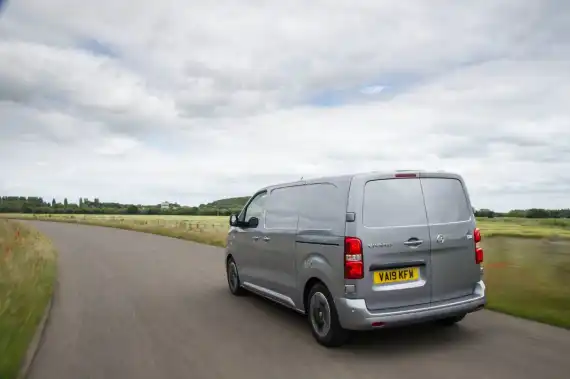
Ok. What about range? Do they go as far as a diesel model?
No. Not even close. Batteries are great for reducing emissions but not for travelling vast distances, so if you’re covering many motorway miles, you’ll need to stop and charge. According to official figures, the Vauxhall Vivaro Electric has a maximum range of 205 miles, while the larger Ford E-Transit can manage 196 miles. That’s a best-case scenario, though; load up the van with cargo and hit the motorway in the chilly depths of winter, and you’ll see that range reduce dramatically.
Ford has been bold and provided a ‘real world’ range that it reckons you can depend on, which they’ve pinned at 100 miles. That might not sound much, but for many, it’s more than enough; the average Transit driver covers 59.5 miles a day, so having 100 miles to play with is a luxury.
There shouldn't be any range issues for those buzzing around towns doing multi-drop or parcel deliveries. If you’re driving between London and Edinburgh every day, electric power is probably not your best bet.
But I can do that if I need to, yeah?
Of course, but you’ll have to stop and charge on the way. That can be costly, with rates of up to £1 a kWh at the upper extremes or pricing. At that point, you’ll save money with diesel, but it's worth it for a one-off or occasional journey.
Of course, you’ll need to sit and wait for the van to charge. Most vans will now charge from neatly empty to about 80% in around 45 minutes, with some far quicker than that. Enough time for a spot of lunch, anyway.
It’s not enough of a hardship to put off the likes of Amazon, John Lewis or UPS, all of whom have taken delivery of loads of electric vans.
So they’re expensive to buy but cheap to run, don’t go far but go far enough, carry as much as a regular van, and the government will pay something towards it. But is it right for me?
That’s the $64 million question! If you’re covering sensible miles, especially in urban areas, and can charge up on a slow (and cheap) charger overnight, either at home or in a yard, then the numbers are likely to add up for you. If you’re doing lots of long-haul driving, stick with something more traditional for now.
Excellent. I’m in. Which electric van is best?
If you want something large, then the Ford E-Transit is the class of the field. It’s great to drive, has good cargo volume and payload capacities, goes a long way on a charge and undercuts its rivals on price by some margin.
The Toyota Proace Electric is a good option for a medium van. It’s identical to the Vauxhall Vivaro Electric, but the prospect of a 10-year warranty from Toyota Professional dealers is compelling, especially for owner-operators who are likely to keep a van for more than a few years.
The same holds for compact vans, where the Toyota Proace City Electric is a facsimile of the Vauxhall Combo but with extra long-term security.
Even those needing a tiny car-derived van can pick up a Renault Zoe. It’s a blast to drive and has a 245-mile range.
Even pickup fans are catered for, or at least will be soon; the first electric pickup will be the Maxus T90 EV. There’s no 4x4 option, though, so those needing rugged offroading capability will have to wait a little longer.

